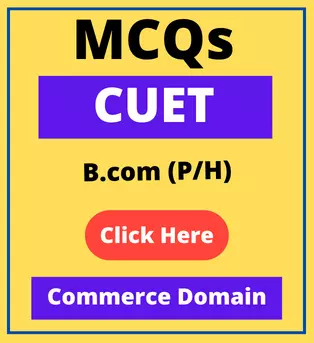Matching Type MCQs of Human Capital Formation Class 12
Looking for important matching types MCQs (Multiple Choice Questions) with answers of Human Capital Formation Chapter of Indian Economic Development Book of Class 12 CBSE, ISC and other state Board.
We have made an exclusive collection of Matching Type MCQs of Human Capital formation chapter of with answers economics class 12
Matching Type Multiple Choice Questions with answers of Human Capital Formation (Economics Class 12)
Let’s Practice
Identify the correct pair from Column I and Column II and choose the correct alternative:
| Column – I | Column – II |
| A Physical Capital B Human Capital C Physical Capital | i) Give private and Social benefits ii) Perfectly mobile between countries iii) Depreciate with time |
a) A – (i)
b) B – (ii)
c) C – (iii)
d) All of the above
Ans – d)
Match the following Column I and Column II and choose the correct alternative:
| Column – I | Column – II |
| A Preventive medicine B Curative Medicine C) Social Medicine | (i) Medical intervention during illness (ii) Vaccination (iii) Spread of health literacy |
a) A – (ii), B – (i), C – (iii)
b) A – (iii), B – (i), C – (ii)
c) A – (i), C – (iii), C – (ii)
d) A – (ii), B – (iii), C – (i)
Ans – a)
Identify the correct pair from Column I and Column II choose the correct alternative.
| Column – I | Column – II |
| A Human Capital B Human Development C Human Capital Formation D) Migration | (i) It means stock of knowledge, skills, education and health of a nation during the first 6 months of every year. (ii) It means development of individuals as valuable personality by acquiring good education and good health. (iii) It is the process of acquiring and increasing human capital of a nation during a shorter period of time. (iv) It means movement of people in search of jobs from cities to their native places. |
a) A – (i)
b) B- (ii)
c) C – (iii)
d) D – (iv)
Ans – b)
Match the statements given under A with the correct options given under B.
| Column (A) | Column (B) |
| (i) Youth Literacy Rate | a) It refers to the ratio of the literate adult population to the total adult population in a country b) It refers to the percentage of people ages 15-24 who can, with understanding read and write a short, simple statement on their everyday life. |
Options
a) i – A
b) i – B
Ans – b)
Match the statements given under A with the correct options given under B
| Column (A) | Column (B) |
| (i) Human Capital (ii) Physical Capital | a) It is tangible and can be easily sold in the market b) It is intangible and can not be sold in the market. |
Options
a) i – A, ii – B
b) i – B, ii – A
Ans – b)
Match the statements given under A with the correct options given under B.
| Column (A) | Column (B) |
| (i) Right to Education Act, 2009 | A) Enacted to make free education a fundamental right of all children in the age group of 6 – 14 years B) Enacted to make free education a fundamental right of all children in the age group of 9 – 13 years. |
Options
a) i – A
b) i – B
Ans – a)
Match the statements given under A with the correct options given under B.
| Column (A) | Column (B) |
| i) Human Capital ii) Human Development | a) It considers education and health as a means to increase labour production b) It considers education and health are integral to human well-being |
Options
a) i – A, ii – B
b) i – B, ii – A
Ans – a)
Choose the correct combination between the following columns
| Column – I | Column – II |
| A – Sources of human capital | (i) Broader aspect |
| B – Sources of physical Capital | (ii) Narrow concept |
| C – Human Capital | (iii) Education training and health |
| D – Human development | (iv) Machinery tools and equipments |
Options
a) A – (iv), B – (iii), C – (ii), D – (i)
b) A – (iii), B – (iv), C – (ii), D – (i)
c) A – (iii), B – (iv), C – (i), D – (ii)
d) A – (iv), B – (iii), C – (i), D – (ii)
Ans – b)
Choose the correct combination between the following columns.
| Column – I | Column – II |
| A – National Skill Development Mission | (i) Emergence of India as one of the four major growth centres by 2020 |
| B – The Tapas Majumdar Committee Report | (ii) India should make a transition to the knowledge economy |
| C – Deutsche Bank report on Global Growth Centre | (iii) Launched in 2015 with an intention to train over 40 crores Indians and create an empowered workforce by 2022. |
| D – World Bank report on India and the knowledge economy | (iv) Expenditure of around ₹ 1.37 lakh crore over 10 years (1998 – 99) to 2006-07) to bring all Indian children in the age group of 6-14 years under the purview of school education. |
Options
a) A – (iv), B – (iii), C – (ii), D – (i)
b) A – (iii), B – (i) C – (ii), D – (iv)
c) A – (iii), B – (iv), C – (i), D – (ii)
d) A – (iv), B – (iii), C – (i), D – (ii)
Ans – c)


